
The University of British Columbia (UBC) is a public research university with campuses near Vancouver and Kelowna, in British Columbia, Canada. With an annual research budget of $893 million, UBC funds 9,992 projects annually in various fields of study within the industrial sector, as well as governmental and non-governmental organizations.
An associate degree or associate's degree is an undergraduate degree awarded after a course of post-secondary study lasting two to three years. It is a level of academic qualification above a high school diploma and below a bachelor's degree.
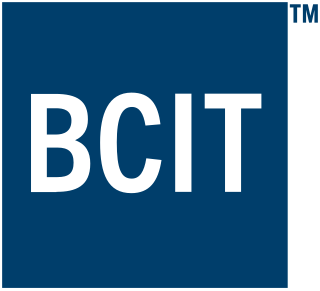
The British Columbia Institute of Technology, is a public polytechnic institute in Burnaby, British Columbia, Canada. The technical institute has five campuses located in the Metro Vancouver region, with its main campus in Burnaby, British Columbia, Canada. There is also the Aerospace Technology Campus in Richmond, the Marine Campus in the City of North Vancouver, Downtown campus in Vancouver, and Annacis Island Campus in Delta. It is provincially chartered through legislation in the College and Institute Act. The school operates as a vocational and technical school, offering apprenticeships for the skilled trades and diplomas and degrees in vocational education for skilled technicians and workers in professions such as engineering, accountancy, business administration, broadcast/media communications, digital arts, nursing, computing, medicine, architecture, and law.

Trinity Western University (TWU) is a private Christian liberal arts university with campuses in both Langley and Richmond, British Columbia. The school is a member of Universities Canada.
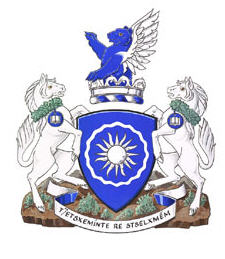
Thompson Rivers University is a public teaching and research university offering undergraduate and graduate degrees and vocational training. Its main campus is in Kamloops, British Columbia, Canada, and its name comes from the two rivers which converge in Kamloops, the North Thompson and South Thompson. The university has a satellite campus in Williams Lake, BC and a distance education division called TRU-Open Learning. It also has several international partnerships through its TRU World division. TRU is accredited by the Northwest Commission on Colleges and Universities (NWCCU) at the associate, baccalaureate and master's degree levels.
University Canada West (UCW) is a private, for-profit university in British Columbia, Canada. It was founded in 2005 by David F. Strong, the former president of the University of Victoria. UCW was purchased in 2008 by the Eminata Group and in 2014 sold to Global University Systems, its present owners. Based in downtown Vancouver, the university offers undergraduate and graduate programs in business and management. As of 2023, with nearly 14,000 international study permits, it is second only to Conestoga College for number of permits for post-secondary institutions in Canada.

Quest University was a private, not-for-profit, secular liberal arts and sciences university. The university opened in September 2007 with an inaugural class of 73 and suspended academic operations in April 2023. The university had an enrolment of around 200 students around the time of its closing. The campus was sold to Capilano University for $63.2M who began operating at the campus in Fall 2024.

The University of the Fraser Valley (UFV), formerly known as University College of the Fraser Valley and Fraser Valley College, is a public university with campuses in Abbotsford, Chilliwack, Mission and Hope, British Columbia, Canada. Founded in 1974 as Fraser Valley College, it was a response to the need for expanded vocational training in the communities of the Fraser Valley. In 1991, it became a university college, with degree-granting status. As the University College of the Fraser Valley, it grew rapidly, becoming one of the largest university colleges in Canada.
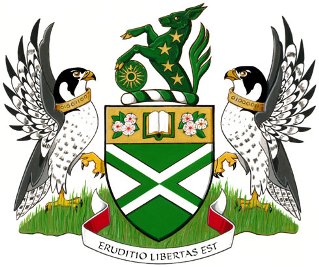
Langara College is a public degree-granting college in Vancouver, British Columbia, Canada which serves more than 19,000 students annually. Langara College started in 1965 as part of Vancouver Community College and in 1970, it opened its West 49th Avenue campus. On April 1, 1994, Langara College was established as an independent public college under the Provincial College and Institute Act. The College is also known as snəw̓eyəɬ leləm̓, house of teachings, a name given to the college by the Musqueam First Nation.

Vancouver Community College (VCC) is a public community college in Vancouver, British Columbia, Canada. Founded in 1965, it is the oldest community college in British Columbia. VCC offers 79 certificate programs, 24 diploma programs, 9 award of achievement programs, 8 apprenticeship programs, 4 statement of completion programs, 3 bachelor's degree programs and 2 associate degree programs. VCC has two campuses: Broadway and Downtown.
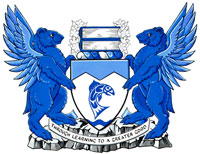
Capilano University (CapU) is a teaching-focused public university based in North Vancouver, British Columbia, Canada, located on the slopes of the North Shore Mountains, with programming that also serves the Sea-to-Sky Corridor and the Sunshine Coast. The university is named after Chief Joe Capilano, leader of the Squamish people from 1895 to 1910.
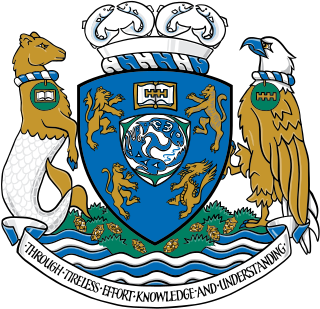
Kwantlen Polytechnic University (KPU) is a public undergraduate degree-granting polytechnic university in British Columbia, Canada, with campuses in Surrey, Richmond, Cloverdale, Whalley, and Langley. KPU is one of the largest institutions by enrolment in British Columbia garnering a total of 20,000 students and 1,400 faculty members across its five locations, encompassing the Metro Vancouver district. KPU provides undergraduate and vocational education including bachelor's degrees, associate degrees, diplomas, certificates, apprenticeships, and citations in more than 140 diverse programs.
The University of British Columbia Okanagan is a campus of the University of British Columbia in Kelowna, British Columbia, Canada.
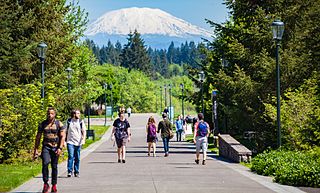
Washington State University Vancouver is a regional campus of Washington State University.
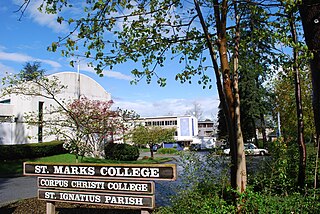
Corpus Christi College (CCC) is a Catholic post-secondary institution affiliated with the University of British Columbia (UBC), located on the UBC campus in Vancouver, British Columbia, Canada. The college provides a range of courses in arts, business, and science with an emphasis on small class sizes and close interaction between students and faculty.
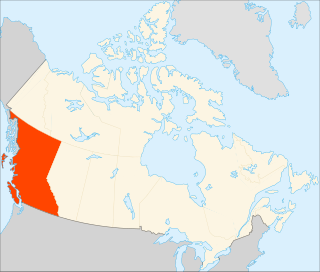
Higher education in British Columbia is delivered by 25 publicly funded institutions that are composed of eleven universities, eleven colleges, and three institutes. This is in addition to three private universities, five private colleges, and six theological colleges. There are also an extensive number of private career institutes and colleges. Over 297,000 students were enrolled in post-secondary institutions in British Columbia in the 2019-2020 academic year.

A Bachelor of Science is a bachelor's degree that is awarded for programs that generally last three to five years.
A high school diploma is a diploma awarded upon graduation of high school. A high school diploma is awarded after completion of courses of studies lasting four years, from grade 9 to grade 12. It is the school leaving qualification in the United States and Canada.
Alexander College is a private post-secondary institution in Burnaby, British Columbia, Canada. It was established in 2006 under the British Columbia Ministry of Advanced Education.

The BCIT School of Business + Media is a business school within the British Columbia Institute of Technology (BCIT). In 1965, the School of Business was founded and has campuses located in Burnaby and downtown Vancouver, British Columbia, Canada. Programs are accredited by the Accreditation Council for Business Schools and Programs.















